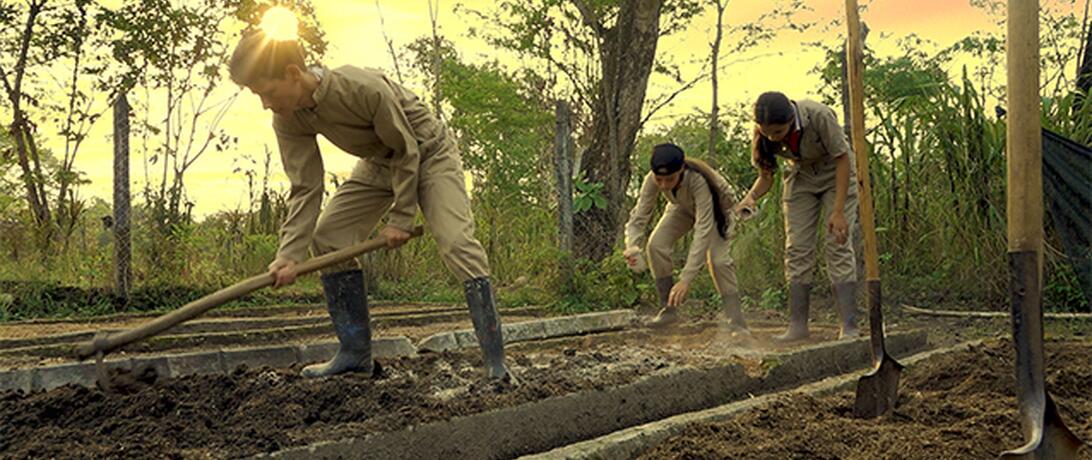
The migration of Venezuelans to Colombia implies a great challenge for the economic inclusion of 1.2 million people, and is at the same time an opportunity to boost the rural economy on the Colombian-Venezuelan border.
The migration of Venezuelans to Colombia implies a great challenge for the economic inclusion of 1.2 million people, and is at the same time an opportunity to boost the rural economy on the Colombian-Venezuelan border. To face this reality, PASO Colombia, a One Earth Future program, has agreed with the Municipality of Saravena to develop an Alternative Rural School (ERA ) that will promote agricultural projects generating jobs, producing food and creating profitable commercial products.
The signing of the agreement between PASO Colombia and the Mayor's Office of Saravena will take place on May 14 at 4:00 PM in the Strategic Dialogues Room of the Concordia Americas Summit 2019 .
In its first phase, the Saravena ERA will develop 103 hectares of land and will benefit more than 400 Venezuelan families, 600 families who are victims of the armed conflict, and 40 families of ex-combatants. In a second phase, 400 hectares will be intervened, benefiting more than 2,400 families on the border.
The ERAs are productive and educational collaboration platforms developed by PASO Colombia in rural territories affected by the armed conflict. The networks of allies associated with each ERA provide peasant communities with agricultural training, technical assistance, and access to land, capital, and markets. In addition, they promote Collaborative Commercial Alliances (ACC) where communities sign agreements with companies that guarantee the purchase of their production at a fair price during a specific period of time. The participants are co-owners of the productive projects developed in the schools through cooperatives and linked associations. There are currently ERAs established in 13 municipalities throughout the country.
A recent study carried out by the firm Cifras yconceptos shows 90% satisfaction among ERA participants. On average, 81% of them rate the development of productive projects within schools as good or excellent.
The new ERA in Arauca will strengthen and build on the experience and current infrastructure of the Rural Development Concentration (CDR), a public and technical school with 1,400 students in primary and secondary schools. The agricultural and animal husbandry projects developed in the ERA will provide training for children and adults; they will produce food for the students and families of the school; they will generate commercial agreements that provide income for these families and will stimulate the economy of the region.
This is a unique opportunity for collaboration between communities of different origins, as well as public, private and international organizations. PASO Colombia hopes to build on the success of this experience, a national model to stimulate food production among rural communities, and strengthen commercially viable production chains, using public agricultural colleges as a platform for collaboration.
Article Details
Published
Topic
Program
Content Type
News